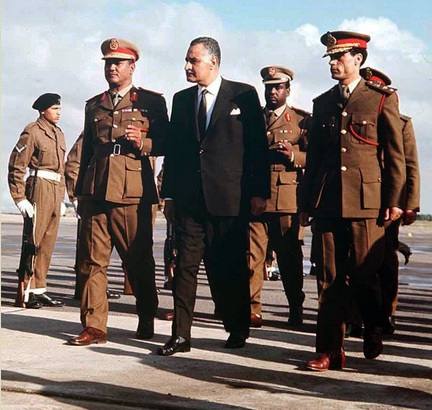|
September 1983 Laws
In September 1983, Sudanese president Gaafar Nimeiry introduced Islamic sharia laws in Sudan, known as September Laws (), disposing of alcohol and implementing ''hudud'' punishments such as public flogging for alcohol consumption and amputations for theft. Nimeiry declared himself the ''imam'' of the "Sudanese umma", leading to concerns about the undemocratic implementation of these laws. Hassan al-Turabi (then the attorney general) assisted with drafting the law and later supported the laws, unlike, the leader of the opposition, Sadiq al-Mahdi's dissenting view. Nimeiry's alliance with the Sudanese Muslim Brotherhood aimed to end sectarian divisions and consolidate Islamic governance. Despite Nimeiry's assertion that the Sharia laws reduced crime rates, his economic policies, including Islamic banking, led to severe economic issues in Sudan, including high inflation and substantial external debt. This led to his removal in 1985, and the law was frozen during the transitio ... [...More Info...] [...Related Items...] OR: [Wikipedia] [Google] [Baidu] |
Amputation In Islamic Law
''Hudud'' (Arabic: ''Ḥudūd'', also transliterated ''hadud'', ''hudood''; plural of ''hadd'', ) is an Arabic word meaning "borders, boundaries, limits". In the religion of Islam it refers to punishments that under Islamic law (sharīʿah) are mandated and fixed by God as per Islam. These punishments were applied in pre-modern Islam,Wael Hallaq (2009), ''An introduction to Islamic law'', p.173. Cambridge University Press. . and their use in some modern states has been a source of controversy. Traditional Islamic jurisprudence divides crimes into offenses against God and those against man. The former are seen to violate God's ''hudud'' or "boundaries", and they are associated with punishments specified in the Quran and in some cases inferred from hadith. The offenses incurring ''hudud'' punishments are ''zina'' (unlawful sexual intercourse such as fornication), unfounded accusations of ''zina'', drinking alcohol, highway robbery, and some forms of theft. Jurists have differed ... [...More Info...] [...Related Items...] OR: [Wikipedia] [Google] [Baidu] |
Islamic Laws In Sudan
The legal system of Sudan has evolved over time. The legacy of British colonial rule has had a significant impact even after independence. Most of the lawyers and judges were British trained and initially tended to rely on judicial precedent. Soon after independence, however, pressure began to build to change the legal system. By the time Jaafar Nimeiry seized power in 1969, a commission had been working on recommendations for a new system, but he dissolved it and formed another commission dominated by 12 Egyptian jurists. Based on recommendations received from them, Sudan adopted a new civil code that looked much like the Egyptian civil code of 1949. The new system was controversial because it disregarded existing laws and customs and introduced many new legal terms and concepts from Egyptian law without source material to interpret the codes. In 1973 the government repealed these codes and returned the legal system to its pre-1970 common-law status. In 1977 Nimeiry agreed to cons ... [...More Info...] [...Related Items...] OR: [Wikipedia] [Google] [Baidu] |
Abu Qurun
Abu or ABU may refer to: Places * Abu (volcano), a volcano on the island of Honshū in Japan * Abu, Yamaguchi, a town in Japan * Ahmadu Bello University, a university located in Zaria, Nigeria * Atlantic Baptist University, a Christian university located in Moncton, New Brunswick, Canada * Elephantine, Egypt, known as Abu to the Ancient Egyptians * A. A. Bere Tallo Airport (IATA: ABU), in Atambua, Indonesia * Mount Abu, the highest mountain in the Indian state of Rajasthan People * Abu (Arabic term), a component of some Arabic names * Ab (Semitic), a common part of Arabic-derived names, meaning "father of" in Arabic * Abu al-Faraj (other) * Abu Baker Asvat, a murdered South African activist and medical doctor * Abu Ibrahim (other) * Abu Mohammed (other) * Abu Salim (other) *Abdul-Malik Abu (born 1995), American basketball player in the Israeli Premier Basketball League * Raneo Abu, Filipino politician Other uses * Abu (god), a minor god of vege ... [...More Info...] [...Related Items...] OR: [Wikipedia] [Google] [Baidu] |
Jihadism
Jihadism is a neologism which is used in reference to "militant Islamic movements that are perceived as existentially threatening to the West" and "rooted in political Islam."Compare: Appearing earlier in the Pakistani and Indian media, Western journalists adopted the term in the aftermath of the September 11 attacks of 2001. Since then, it has been applied to various insurgent Islamic extremist, militant Islamist, and terrorist individuals and organizations whose ideologies are based on the Islamic notion of '' jihad''. It has also been applied to various Islamic empires in history, such as the Arab Umayyad Caliphate and the Ottoman empire, who extensively campaigned against non-Muslim nations in the name of jihad. Contemporary jihadism mostly has its roots in the late 19th- and early 20th-century ideological developments of Islamic revivalism, which further developed into Qutbism and related Islamist ideologies during the 20th and 21st centuries. The Islamic terr ... [...More Info...] [...Related Items...] OR: [Wikipedia] [Google] [Baidu] |
1976 Sudanese Coup Attempt
In early 1972, Gaafar Nimeiry visited Saudi Arabia and engaged in dialogue with Sharif Hussein al-Hindi, the opposition leader, at the request of King Faisal of Saudi Arabia. The dialogue revolved around addressing past grievances and the political landscape. Nimeiry attributed past massacres to communists while Sharif criticised Nimeiry's regime. Offers and suggestions were exchanged, including Nimeiry proposing the Vice Presidency to Sharif, but no agreement was reached. Disappointed with the outcome, Sharif planned an attack on Khartoum with Libyan support. Sadiq al-Mahdi joined the opposition and orchestrated a coup attempt in 1976, storming Khartoum with dissident forces led by Muhammad Nour Saad on 2 July. Their attempt to arrest Nimeiry was met with resistance, and the ensuing battle caused significant civilian casualties. Despite taking control initially, the rebel forces faced supply shortages and eventually succumbed to loyalist troops, ending the coup after a we ... [...More Info...] [...Related Items...] OR: [Wikipedia] [Google] [Baidu] |
Sudanese Islamic Movement
Sudanese or Sudanic may refer to: *pertaining to the country of Sudan **the people of Sudan, see Demographics of Sudan *pertaining to Sudan (region) **Sudanic languages **Sudanic race, subtype of the Africoid racial category See also *Sudanese Civil War (other) The term Sudanese Civil War refers to at least three separate conflicts: *First Sudanese Civil War (1955–1972) *Second Sudanese Civil War (1983–2005) *South Sudanese Civil War (2013–2020) It could also refer to other internal conflicts in Suda ... {{disambig Language and nationality disambiguation pages ... [...More Info...] [...Related Items...] OR: [Wikipedia] [Google] [Baidu] |
Library Of Congress
The Library of Congress (LOC) is the research library that officially serves the United States Congress and is the ''de facto'' national library of the United States. It is the oldest federal cultural institution in the country. The library is housed in three buildings on Capitol Hill in Washington, D.C.; it also maintains a conservation center in Culpeper, Virginia. The library's functions are overseen by the Librarian of Congress, and its buildings are maintained by the Architect of the Capitol. The Library of Congress is one of the largest libraries in the world. Its "collections are universal, not limited by subject, format, or national boundary, and include research materials from all parts of the world and in more than 470 languages." Congress moved to Washington, D.C., in 1800 after holding sessions for eleven years in the temporary national capitals in New York City and Philadelphia. In both cities, members of the U.S. Congress had access to the sizable colle ... [...More Info...] [...Related Items...] OR: [Wikipedia] [Google] [Baidu] |
Federal Research Division
The Federal Research Division (FRD) is the research and analysis unit of the United States Library of Congress. The Federal Research Division provides directed research and analysis on domestic and international subjects to agencies of the United States government, the District of Columbia, and authorized federal contractors. As expert users of the vast English and foreign-language collections of the Library of Congress, the Division's area and subject specialists employ the resources of the world's largest library and other information sources worldwide to produce impartial and comprehensive studies on a cost-recovery basis. The Federal Research Program is run by the Federal Research Division (FRD), the fee-for-service research and analysis unit within the Library of Congress. The Federal Research Program of the Library of Congress was authorized by the United States Congress in accordance with the Library of Congress Fiscal Operations Improvement Act of 2000 (2 U.S.C. 182c ... [...More Info...] [...Related Items...] OR: [Wikipedia] [Google] [Baidu] |
Muslim Brotherhood
The Society of the Muslim Brothers ( ar, جماعة الإخوان المسلمين'' ''), better known as the Muslim Brotherhood ( ', is a transnational Sunni Islamist organization founded in Egypt by Islamic scholar and schoolteacher Hassan al-Banna in 1928. Al-Banna's teachings spread far beyond Egypt, influencing today various Islamist movements from charitable organizations to political parties—not all using the same name. Initially, as a Pan-Islamic, religious, and social movement, it preached Islam in Egypt, taught the illiterate, and set up hospitals and business enterprises. It later advanced into the political arena, aiming to end British colonial control of Egypt. The movement's self-stated aim is the establishment of a state ruled by Sharia law–its most famous slogan worldwide being: "Islam is the solution". Charity is a major aspect of its work. The group spread to other Muslim countries but has its largest, or one of its largest, organizations in Egypt d ... [...More Info...] [...Related Items...] OR: [Wikipedia] [Google] [Baidu] |
People's Assembly Of Sudan
The National Assembly (, ''Al-Maǧlis al-Waṭaniy'') is the lower house of the National Legislature of Sudan, National Legislature of Sudan. The legislature was unicameral until 2005. The upper house is the Council of States of Sudan, Council of States (''Majlis Welayat''). The National Assembly was dissolved on 11 April 2019 following a 2019 Sudanese coup d'état, military coup which overthrew Sudan President Omar al-Bashir and Assembly's ruling National Congress Party. As part of the 2019 Sudanese transition to democracy, a Transitional Legislative Council (Sudan), Transitional Legislative Council is to be formed which will function as the legislature of Sudan until elections scheduled for 2022. Speakers Hassan al-Turabi, Hassan Abdallah al-Turabi was the speaker from 1996 until he stripped of the post in December 1999, and placed under arrest after a falling out with President Omar al-Bashir. 2015-2019 session The most recent session was Sudanese general election, 2015 ... [...More Info...] [...Related Items...] OR: [Wikipedia] [Google] [Baidu] |
Muslim Brotherhood (Sudan)
The National Islamic Front ( ar, الجبهة الإسلامية القومية; transliterated: ''al-Jabhah al-Islamiyah al-Qawmiyah'') was an Islamist political organization founded in 1976 and led by Dr. Hassan al-Turabi that influenced the Sudanese government starting in 1979, and dominated it from 1989 to the late 1990s. It was one of only two Islamic revival movements to secure political power in the 20th century (the other being the followers of Ayatollah Ruhollah Khomeini in the Islamic Republic of Iran). The NIF emerged from Muslim student groups that first began organizing in the universities during the 1940s, and its main support base has remained the college educated. It supported the maintenance of an Islamic state run on sharia and rejected the concept of a secular state. It took a "top down" or "Islamisation from above" approach of "infiltrating Sudan's state apparatus, army, and financial system". Kepel, ''Jihad'', 2002: p.177 It demonstrated itself to be ... [...More Info...] [...Related Items...] OR: [Wikipedia] [Google] [Baidu] |





